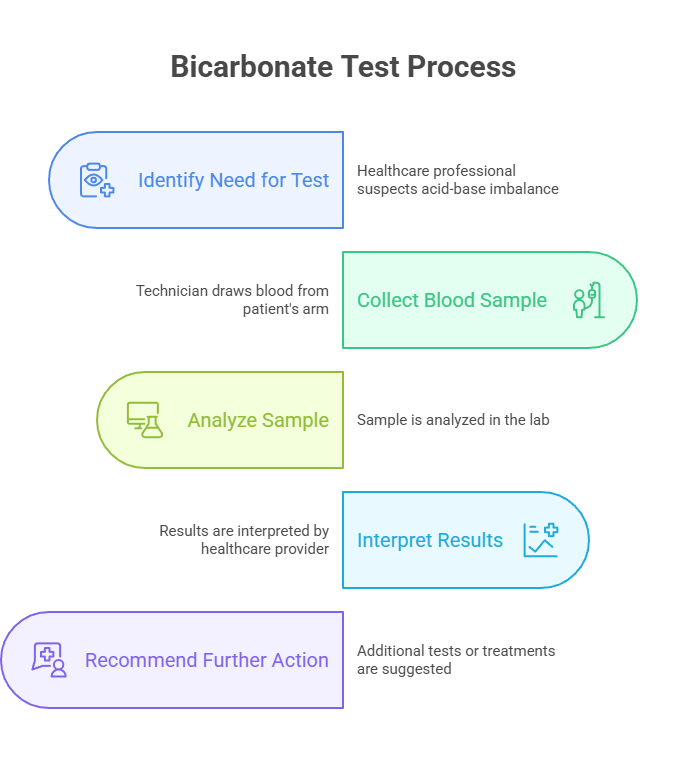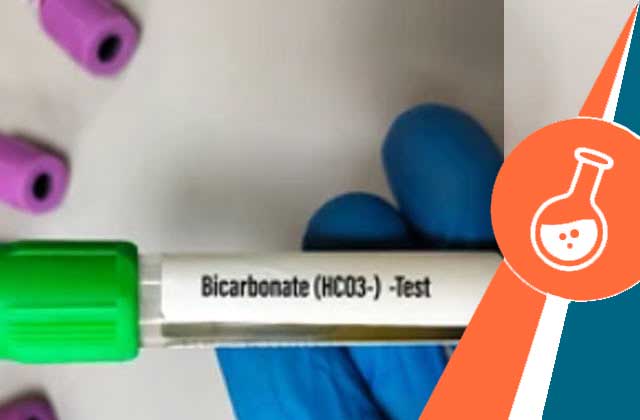
Bicarbonate Test and its Function
Bicarbonate plays a crucial role in maintaining the acid-base balance in the body. It acts as a primary buffer, helping to neutralize excess acid or base and maintain the pH within the normal range. The Bicarbonate test is used to assess the body’s ability to regulate and maintain proper acid-base balance.
Conditions that may require Bicarbonate Test
The Bicarbonate test may be required in the following conditions:
- Acid-Base Imbalances: The Bicarbonate test is commonly used to assess acid-base imbalances in the body. It may be ordered if there are signs or symptoms suggestive of acidosis (increased acidity) or alkalosis (increased alkalinity). These imbalances can occur due to various reasons, including kidney or respiratory disorders, metabolic conditions, or certain medications.
- Kidney Disease: Bicarbonate levels can be affected by kidney dysfunction or certain kidney disorders. The Bicarbonate test may be ordered as part of a kidney function panel to evaluate the kidneys’ ability to maintain the acid-base balance. Decreased bicarbonate levels may indicate impaired kidney function or renal tubular acidosis.
- Respiratory Disorders: The Bicarbonate test can be useful in assessing respiratory disorders that can impact acid-base balance. Conditions such as chronic obstructive pulmonary disease (COPD), asthma, or respiratory acidosis can affect bicarbonate levels. The test helps evaluate the compensatory mechanisms of the body to maintain acid-base homeostasis.
- Metabolic Disorders: Metabolic acidosis or alkalosis can lead to changes in bicarbonate levels. The Bicarbonate test may be ordered to help diagnose and monitor these metabolic disorders. Metabolic acidosis can occur due to conditions like diabetic ketoacidosis, kidney disease, or severe diarrhea, while metabolic alkalosis can be caused by conditions such as vomiting or excess intake of alkaline substances.
Bicarbonate Test Procedure
The Bicarbonate Test is a simple blood test that can be performed in a laboratory. Before the test, the patient may be asked to avoid certain medications that may affect the results. During the test, our healthcare professional will use a needle to draw blood from a vein in the patient’s arm. The blood sample will then be sent to our laboratory for analysis.
Interpreting Bicarbonate Test Results
The normal range for bicarbonate levels in the blood is typically between 22 and 28 milliequivalents per liter (mEq/L). Values within this range are considered normal and indicate a balanced acid-base status.
More Related Tests
Why To Book with HealthCareOnTime

17 Crores+ Samples Processed

World Class Technology Labs

25+ Years of Trust & Experience

Free Home Collection
FAQs Around Bicarbonate Test
How much does Bicarbonate Test cost?
The Bicarbonate Test cost is Rs.700, although it is now available for Rs.500 because of the offer.










